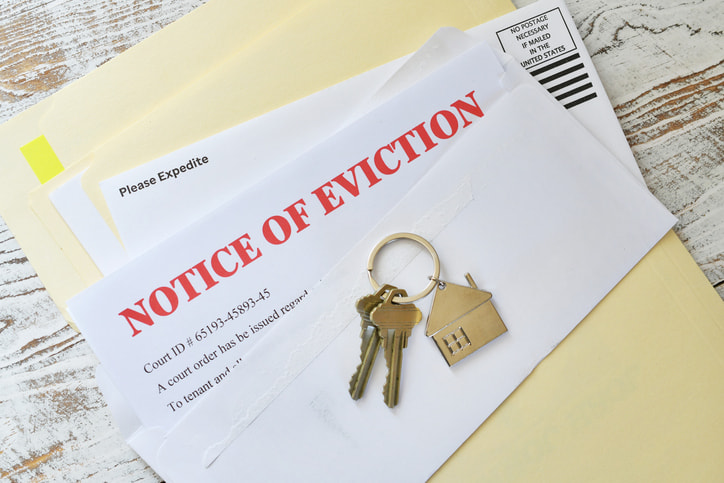A Guide to the Eviction Process in Michigan
A Comprehensive Guide to the Eviction Process in Michigan
Navigating the eviction process in Michigan can be challenging for landlords who want to ensure compliance with the law while maintaining a professional rapport with tenants. This guide will walk you through the essential steps of the eviction process, helping you understand the legal framework and minimize headaches.
Disclaimer: This content is intended for informational purposes only and should not be taken as legal advice. Consult with an attorney for specific legal guidance regarding your situation.

Overview of Michigan’s Eviction Process
Evictions in Michigan must follow a formal legal process, as outlined by the state’s landlord-tenant laws. Failure to comply with these laws may result in delays, legal action, or fines. Here is a step-by-step breakdown of how landlords can legally evict tenants in Michigan.
Step 1: Serve a Notice to Quit
The eviction process begins with serving the tenant a written Notice to Quit. The type of notice varies depending on the reason for the eviction, including non-payment of rent, lease violations, or illegal activity.
- 7-Day Notice to Quit (Nonpayment of Rent): This is used when tenants fail to pay rent by the due date. It provides the tenant with seven days to pay the rent or vacate the property.
- 30-Day Notice to Quit (Lease Violation): For cases like property damage, exceeding occupancy limits, or subletting without consent. Tenants have 30 days to resolve the issue or leave.
- 24-Hour Notice to Quit (Illegal Drug Activity): Applicable when illegal drug-related activity occurs on the premises.
Step 2: File a Summons and Complaint
If the tenant does not act within the notice period, the next step is to file a summons and complaint with the court. This officially begins the eviction lawsuit.
- Landlords must pay a filing fee, which typically ranges from $45 to $150 depending on the case’s complexity.
- A summons is then issued, notifying the tenant of the court hearing date.
The summons and complaint must be officially served to the tenant, typically by a professional process server or law enforcement.
Step 3: Attend the Court Hearing
Once the summons has been served, a court hearing is usually scheduled within 10 days. Both the landlord and tenant will present their case to a judge during this hearing.
- Landlord’s Role: Provide evidence, such as unpaid rent notices, photographs of property damage, or lease agreements, to demonstrate the tenant’s violation of lease terms.
- Tenant’s Defense: Tenants have the right to challenge the eviction with claims like landlord retaliation, unsafe living conditions, or improper notice.
If the tenant fails to appear at the hearing, the court will likely issue a default judgment in favor of the landlord.
Step 4: Obtain a Judgment
After the hearing, the court will issue a judgment either for the landlord or the tenant. If the judgment favors the landlord, the court will issue a Writ of Restitution, authorizing law enforcement to proceed with the eviction.
The tenant is typically given 10 days to vacate the property voluntarily following the judgment.
Step 5: Execute the Eviction Order
If the tenant does not leave voluntarily after the judgment, the landlord must involve local law enforcement to enforce the Writ of Restitution.
- Law enforcement officers will oversee the removal of the tenant and their belongings from the property.
- Landlords must not attempt to evict tenants themselves, as this is considered illegal under Michigan law.
Protecting Tenant Rights During the Process
Tenants in Michigan are protected by various legal provisions. Landlords must avoid unlawful eviction practices, such as changing the locks, shutting off utilities, or removing tenants’ belongings without proper legal authorization. Additionally, tenants have the right to a fair court hearing and reasonable time to vacate the property after an eviction judgment.
Tenants may also challenge an eviction based on claims like landlord discrimination, unsafe housing conditions, or improper notice.
FAQs on Michigan Eviction Laws
- How long does the eviction process take?
The timeline varies depending on the case, but the process generally takes 1-2 months from serving the notice to the tenant’s removal.
- Can I evict a tenant without a written lease?
Yes, landlords can evict tenants without a lease by providing the proper notice (usually 30 days for month-to-month tenants).
- What happens if the tenant pays rent after receiving a 7-Day Notice to Quit?
If tenants pay the full rent owed during the notice period, landlords must stop the eviction process.
- How much notice must I give for lease violations?
For most lease violations, landlords must provide a 30-day notice before filing a court complaint. Specific violations, like illegal activity, may only require 24 hours’ notice.
- Can I include unauthorized fees or penalties in the eviction notice?
No, landlords can only seek unpaid rent and repair costs through the eviction process. Penalties or additional fees must not be included.
